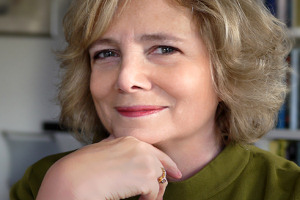Publicity news from the press, including new titles, upcoming events, launches, conferences, and newsworthy information. Interact with our authors about hot topics from your field of interest.
Friday 21 February 2014
Vanishing for the vote - census schedules
1911 was a time of frenzied political activity - including of course the Votes for Women campaigns. With the Liberal government's forcible feeding of hunger-striking suffragettes in prison now in its second year, militant suffragette organizations called for a boycott of the census. Many did support the boycott.
The following 18 census schedules detail responses of those who refused to sign - 'no vote, no census'.
http://www.jliddington.org.uk/1911a.html
Vanishing for the vote recounts what happened on one night, Sunday 2 April, 1911, when the Liberal government demanded every household comply with its census requirements. Suffragette organisations urged women, all still voteless, to boycott this census.
The book plunges the reader into the turbulent world of Edwardian politics, so vividly recorded on census night 1911. Based on a wealth of brand-new documentary evidence, it offers compelling reading for history scholars and general readers alike.
Sumptuously produced, with 50 illustrations and an invaluable Gazetteer of suffrage campaigners.
http://www.manchesteruniversitypress.co.uk/cgi-bin/indexer?product=9780719087493
Thursday 13 February 2014
New CEO for Manchester University Press
Manchester University Press is delighted to announce that after an international search and appointment process Dr Frances Pinter has been appointed as Chief Executive Officer of Manchester University Press (MUP).


Friday 7 February 2014
British Queer History
As we celebrate this
year’s LGBT History month, we should commemorate an important milestone in the
struggle for gay rights. 2014 marks the sixtieth anniversary of the setting up
of the Wolfenden Committee—or, to give it its full title, the Departmental Committee
on Homosexual Offences and Prostitution, chaired by Sir John Wolfenden, Vice
Chancellor of Reading University. In 1954, Winston Churchill’s Conservative
government was worried about homosexuality for numerous reasons. These included
a recent spike in prosecutions for homosexual offences thanks to more vigorous
policing; greater public awareness of homosexuality spread by the popular
press; increased medical, scientific and religious questioning of sexual
deviance over the previous decades; public order concerns about the state of
London’s streets, and the prevalence of cruising and prostitution, especially
around the time of the Coronation of Elizabeth II in 1953; ripples from the
Cold War, equating homosexuality with espionage and treason in the wake of
McCarthyism in America and the defection of Guy Burgess and Donald Maclean to
the Soviet Union in 1951; and the high profile trial and imprisonment in 1954
of three prominent men—landowners Lord Montagu of Beaulieu and Michael
Pitt-Rivers and the Daily Mail journalist
Peter Wildeblood—for having sex with men in private.
The Wolfenden Committee, which consisted of fifteen
Establishment figures—twelve men and three women—heard evidence over the next
three years. The testimonials and written statements of witnesses before the
committee, all of which can be consulted at the National Archives at Kew, provide
by far the most complete and extensive array of perspectives we have on how
homosexuality was understood in Britain in the middle decades of the twentieth
century. Those giving evidence, individually or through their professional
associations, included: police chiefs, policemen, magistrates, judges, lawyers
and Home Office civil servants; doctors, psychiatrists, psychotherapists and biologists
(including Alfred Kinsey, the author of the famous Kinsey Reports into male and
female sexuality in the US); prison governors, medical officers and probation
officers; representatives of the churches, morality councils and progressive
and ethical societies; schoolteachers and youth organization leaders;
representatives of the army, navy and air force; and three self-confessed homosexuals
(two of them anonymous): Peter Wildeblood, Patrick Trevor-Roper (a
distinguished eye surgeon) and Carl Winter (Director of the Fitzwilliam Museum
at Cambridge).
The range of opinions varied between those (mainly in the
law enforcement community) who favoured continued criminalization of gay sex,
and those (mainly in medical, religious and ethical ranks) who tended to
believe that homosexuality was a medical, not a legal, problem, that it was
either innate (as sexologists like Havelock Ellis would have it) or acquired at
some stage during childhood development (the Freudian perspective). In addition
to these pronouncements, there is much fascinating information in the Wolfenden
archive about the multifarious attempts at discovering aetiologies and
prescribing treatments, and about the policing of public sex and of cottaging—even
a set of instructions on how to conduct physical examinations for sodomy in the
Royal Navy. There are also many case studies of homosexuals and how they lived
their lives. The focus is on men since the law was silent on sex between women,
but occasionally some of these expert commentators shared their thoughts on
lesbians as well.
The Wolfenden Report came out in 1957. It
recommended that homosexual sex between two males over the age of 21 in private
be decriminalized, drawing a very firm public/private distinction, and that (female)
street prostitution be more strictly regulated. The latter was acted upon
swiftly, but it took another decade before the gay sex suggestions were
enacted, in the Sexual Offences Act of 1967. Regardless, Wolfenden has long
been recognized as a landmark in moves towards gay law reform. But scholarly
opinion has been divided. Some see the report as merely opening up a limited
space for respectable, domesticated, straight-acting homosexuals, clamping down
upon public expressions of homosexuality and a diverse array of queer acts and
identities. Others see it, in spite of its limitations, as helping enable the radical politics of the Gay
Liberation Front and the flourishing of a vibrant gay commercial culture in the
1970s. So the debate surrounding Wolfenden is still intense. But, whatever
one’s perspective, its significance for British Queer History is beyond doubt.
Brian Lewis
Professor of History
McGill University
Montreal
Canada
Subscribe to:
Posts (Atom)

